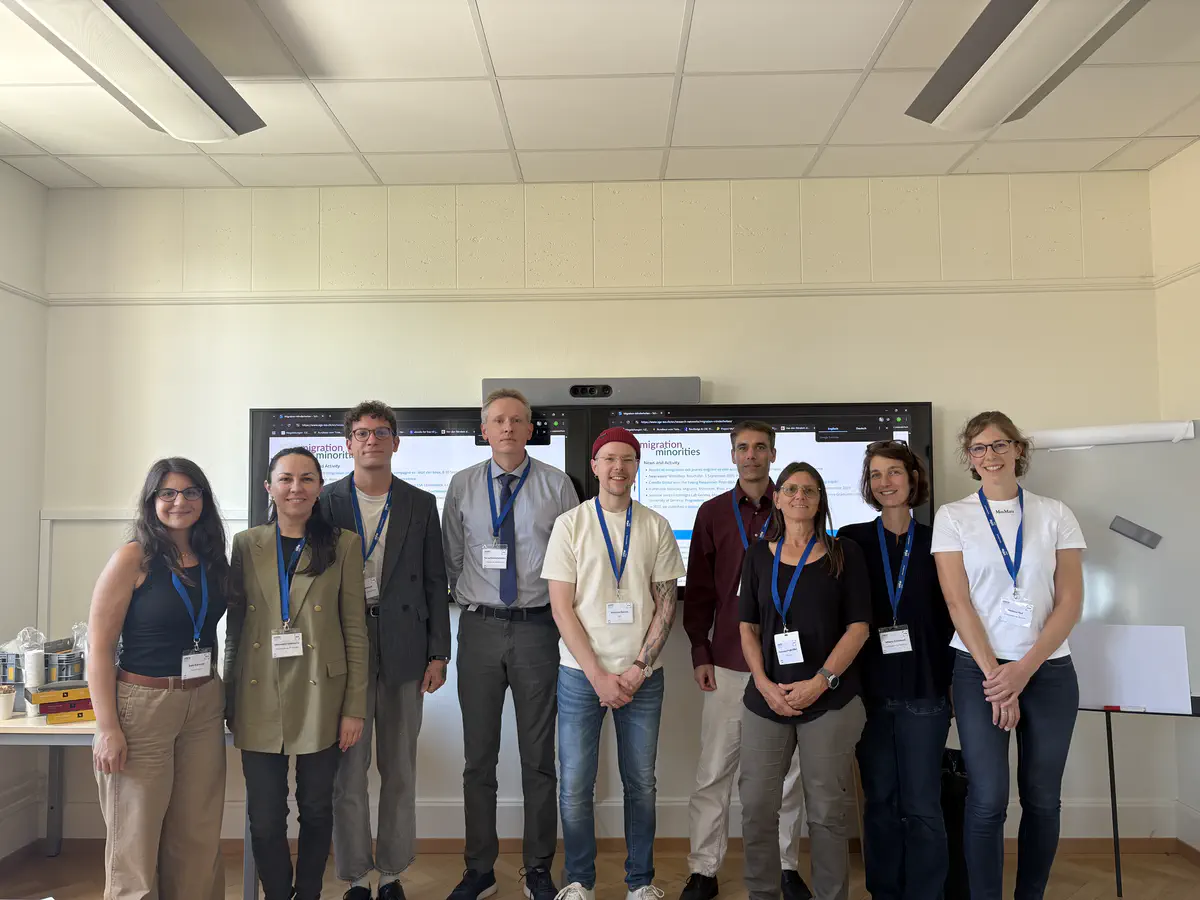ECSR annual conference & workshop of the SSA network
In early September, I traveled to Cologne and Neuchâtel to present ongoing work at two events.
 Mig-Min Workshop at Uni Neuchâtel
Mig-Min Workshop at Uni Neuchâtel
How does getting the first child affect immigrants’ socio-emotional life and emotional connection to their country of residence? This question lies at the heart of an ongoing project on which I am working together with my colleague Natalie Nitsche (Australian National University). Specifically, we are looking at the intersection of gender and education, and discuss the challenges of every group we study.
I visited ANU in May this year to kick off this project with Natalie and had the opportunity to present preliminary findings at this year’s ECSR in Cologne, and on a workshop at the University of Neuchâtel from the “Migration and Minorities” (Mig-Min) Research Network from the Swiss Sociological Association. We received great constructive feedback. Thanks everyone!
Here’s the abstract if you are curious about the project. Stay tuned for more in due time.
Intersectionality in the impact of parenthood among immigrants in a high-income country: Unmet migration expectations among highly educated women and less-educated men
Today, most highly educated immigrants to Europe are women, many of whom have children after arrival. Unlike their male partners, they often struggle to align professional aspirations with traditional parental role expectations in the destination country. Little is known about how this misalignment affects these women. This study addresses that gap by investigating how gender and education intersect in shaping socio-emotional outcomes upon entering parenthood after immigration. We use panel data from immigrants in Switzerland, a high-income country where traditional family roles and labour market penalties for mothers persist. Using fixed-effects regression, we analyse changes in satisfaction with the migration decision, emotional attachment to Switzerland, and general life satisfaction following first-time parenthood. Results show that highly educated immigrant women experience a decline in migration satisfaction, while emotional attachment and life satisfaction remain stable. In contrast, highly educated immigrant men report increased attachment. Less-educated immigrant men show declines across all three indicators, likely due to the pressures of the male breadwinner role under financial strain. Less-educated immigrant women show patterns similar to their male counterparts. Our findings underscore the importance of intersectional approaches to the migration-family formation nexus and suggest further research on emigration behaviour of immigrant families.